John Roberts’ SCOTUS, is legalizing a Confederacy 2.0
The “Father of our Constitution,” and third POTUS, James Madison, is rolling in his grave.
TAT followers,
Welcome back from celebrating the beginning of our republic, one of my favorite holidays. After being raised by a history and government teacher with a full library in the room next to my bedroom, I have a lifelong affinity for both. Not only were these issues present in the library next door to my room, but the lessons of that library were on display daily by the examples `set by both parents and almost all of my greater family. I do my best to uphold my family tradition of dedication to our founding principles, with my pen and by example.
Today, although I am far from being a legal scholar, I do know a thing or two about the miracle of American democracy and will use this knowledge to expose the destructive nature of John Roberts and his super majority on Today’s SCOTUS.
Please bear with me and keep an open mind. My thoughts today are well grounded.
Introduction
First, allow me to paint a limited picture of the pre-Civil War Confederacy with a few bullet points:
The Confederacy was made up of primarily agrarian pursuits
Outside of black/ slave communities, the Confederacy essentially practiced Christian Nationalism
Wealth and power was primarily in the hands of a limited number of white oligarchs or in mid 19th century vernacular, agrarian elite plantation owners.
Slave Narratives from Slavery to the Great Depression
Abstract from the linked article above:
“The Slave Narrative Collection represents the culmination of a literary tradition that extends back to the eighteenth century, when the earliest American slave narratives began to appear. The greatest vogue of this genre occurred during the three decades of sectional controversy that preceded the Civil War. The avowed intention of the antebellum narrative was to challenge the roseate portrait of slavery painted by its apologists. The proslavery justification of the "peculiar institution" alleged that it was a benevolent system and that the position of the slave was more secure than that of the Northern wage earner. The slave, according to George Fitzhugh, one of the most vigorous of the proslavery propagandists, "was happy as a human can be."3
Quote from the same Library of Congress article:
“Just as the antebellum slave narratives had gained prominence in reaction to the Southern defense of slavery, so interest in the latter-day slave narrative was stimulated by the dominant attitudes toward the slave regime that prevailed in the first quarter of the twentieth century. Seldom before or since has racism been so pervasive and so academically respectable in the United States. The assumption of the innate and inherited inferiority of non-Anglo-Saxon racial and ethnic groups permeated and dominated white intellectual and popular thought. Social, scientific, and historical thought both mirrored and reinforced this racism.”
False narratives in the South became the ideology of secession and Christian Nationalism
Except from the link above: “Whatever revolutionary precedent some slaveholders evoked to justify and legitimate their fight for a separate Southern nation, their movement was fundamentally of a different ideological cast. Like European conservatives who bemoaned the spread ofdemocracy and the alleged excesses ofthe age of revolution, they sought to protect racial slavery from the onset of forces that defined modernity. In this sense, the counterrevolution inaugurated by them was long in the making and encompassed more than a response to the election of Abraham Lincoln.3 The older view ofa "great reaction" in the slave South, which made Southern slaveholders suddenly discard Jeffersonian republicanism and replace the view of slavery as a "necessary evil" for a "positive good" in the 1830s was schematic and not altogether accurate.”
There are more points, but for the sake of making my point about today’s SCOTUS, the points above will easily suffice. My discussion of these points will revolve around empowering the supremacy of modern oligarchs, at the expense of the rest of Americans and enabled by the extremist ideology of Christian Nationalism.
First, what do I mean by the Republican (notice that I did NOT use the word Conservative) SCOTUS members enabling oligarchy rather than equitability among Americans. The answer is best explain in the linked paper by Lawerence Baum and Neal Devins of William and Mary Law School.
Key points:
SCOTUS support for Elites, which include modern American Oligarchs such as Harlan Crowe for AJ/ Associate Justice Thomas and AJ Alito. Both are severe violations of the Ethics rules for Judges.
As far as ideology that enables the current, MAGA dominated Republican Party, it is simply racist, Christian Nationalism. I will here link, the 2022 Texas GOP Midterms platform. A cursory read of this document shows a remarkable similarity to many of the same culture war issues that were present in elite “apologists” for slavery in the run up to our Civil War. It’s full of euphemisms for racism, gun violence, historical revisionism as well as enabling of elite corporations and individuals. Here in TX, that means that Big Oil like Exxon Mobil, Marathon, Phillips etc. can do as they please and at the expense of all non-elite, non-Christian Nationalist Texans.
Christian Nationalism has as its primary intent, to convert America into an extremist Theocracy, much like Afghanistan, Iran, India under Modi or even Russia. Theocracy is not an American value and neither is Christianity, the equivalent to Christian Nationalism. Somehow, as evidenced by recent SCOTUS decisions, the John Robert’s Court endorses both oligarchy and Christian Nationalism or rather the ideology of the MAGA crowd that is dismantling American Democracy.
The Supreme Court, pretty much since the days of “Trustbusting” has had several streaks of enabling oligarchy. Now, post Citizen’s United, we are so deep into our current trend that it’s hard to see how we can alleviate ourselves from the dedication to it, by the Roberts’ Court.
Today’s TAT is long and if you read any of the links, quite deep. For this reason, I’ll try to summarize succinctly. American democracy is largely built on freedom from religion, personal freedom and equality. Our current super majority SCOTUS, seems hell bent on eroding all three, with the past two and a half years of decisions… as proof.
The other issue which I find equally disturbing is their intent to move federal government obligations into the realm of the states. James Madison, our third POTUS and “father of our constitution,” identified religion in government and too much power for states over the federal government as fatal flaws. Madison was a global, preeminent scholar of historical representative governments. Prior to penning our constitution, he compared all forms of representative governments from the Greeks through the his current times. It’s remarkable scholarship. This is how he determined the most significant reasons that such governments failed. Now, for wholly unknown reasons, the Roberts’ SCOTUS is unraveling our constitution over his most dangerous concerns.
I will leave AJs Clarence Thomas and Samuel Alito’s disgracefully divergence from court ethics for another day. For the time being, I will only say that in both cases, neither deserves a seat on our highest court. More on Gorsuch will likely be revealed as well in the near future. Not since the Dred Scott decision have I been more disgusted with our highest court. Anyone who truly believes in American democracy, should be disgusted too. As we can see from today’s article and embedded links, the correlations between the pre and post civil war trends are indicative of the current SCOTUS’ revisioning of American law, to meet their Confederacy 2.0 agenda.
All my best for the rest of this short week,
Paul


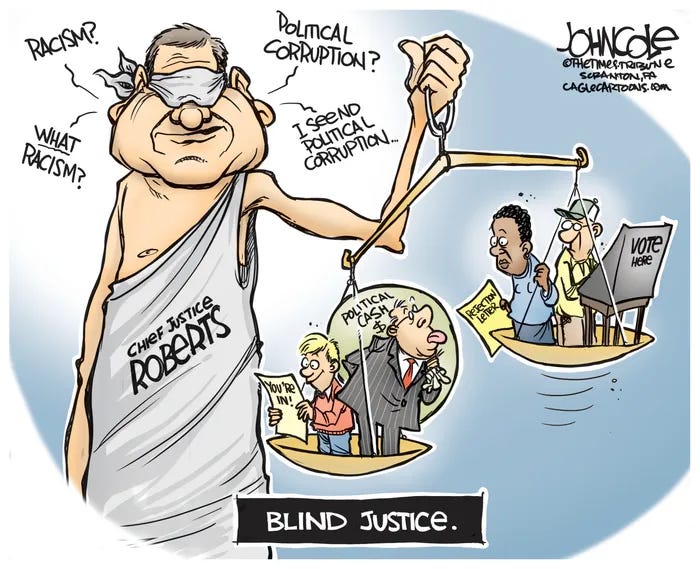


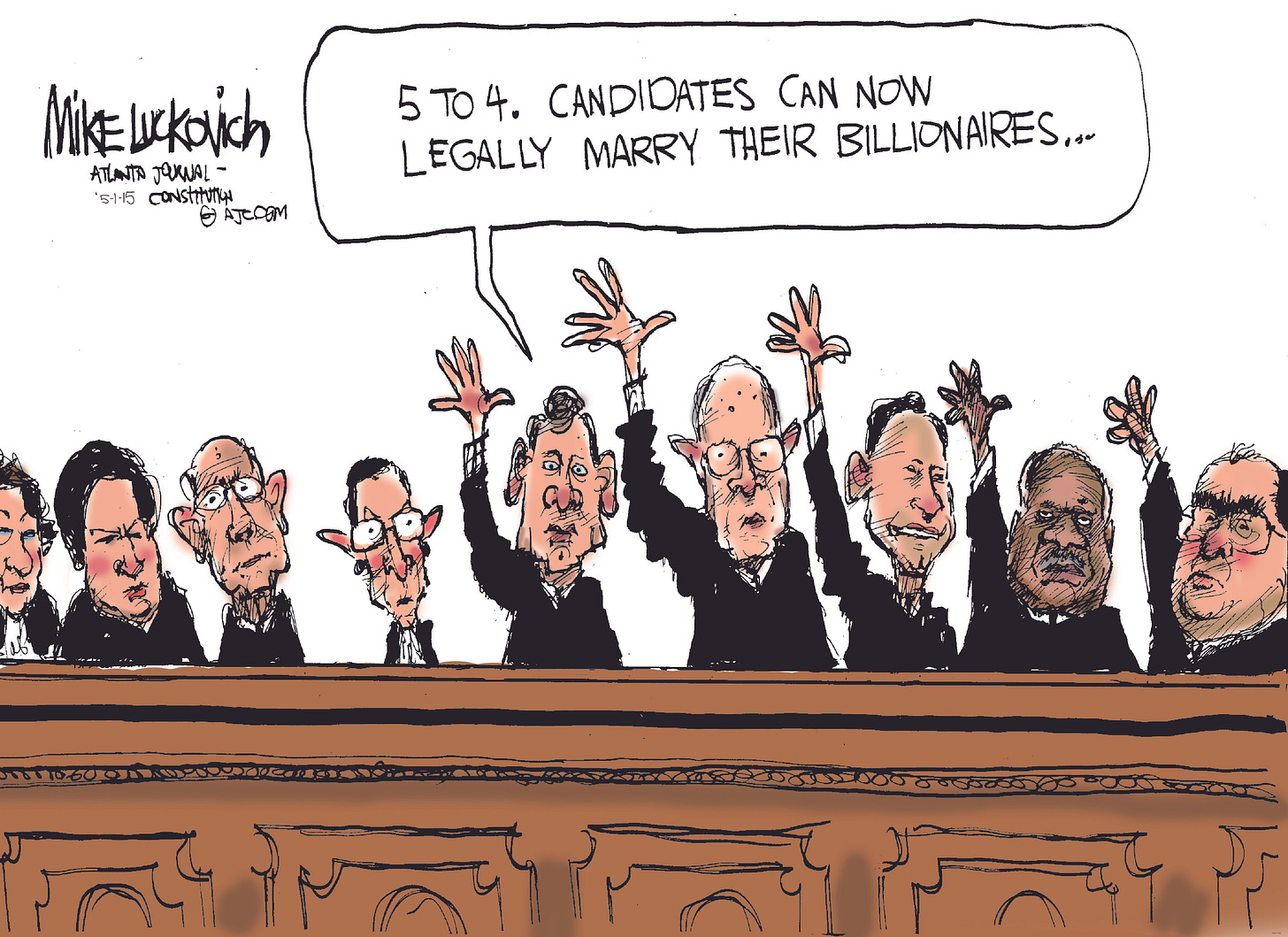
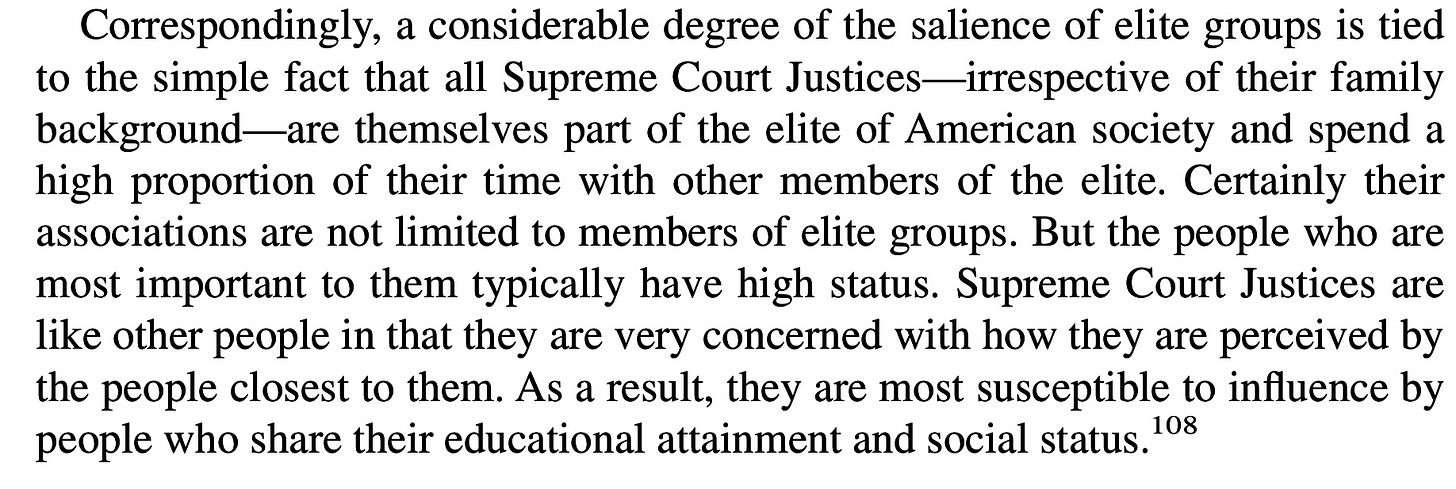
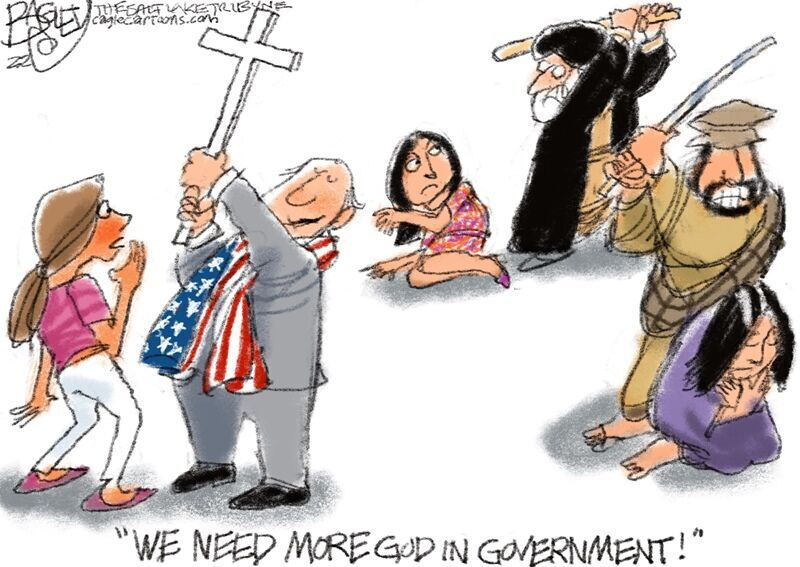

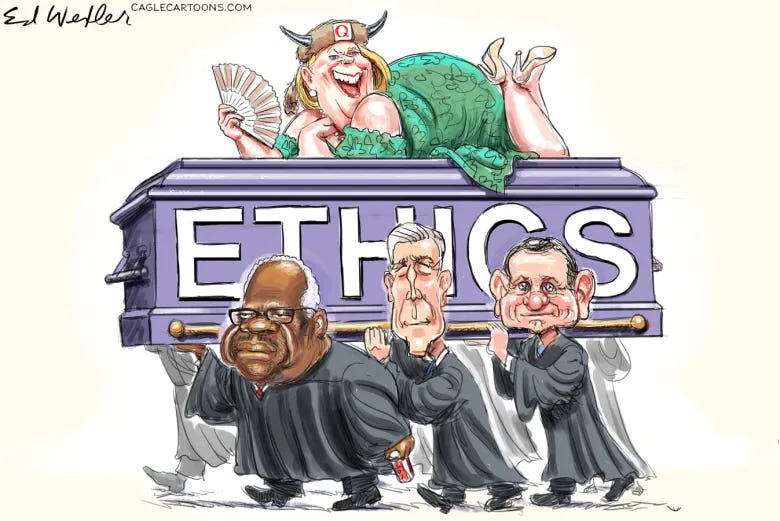
In fairness, Paul, there is more here than I can unpack at the moment. That we have a minor disagreement over the so-called line of separation between freedom of religion and the obligations of a constitutional republic puts us in the mainstream of the American populace.
As to what I understand to be your point that the Federal government is supreme over the States that supremacy exists only in a few select and delineated powers. All other powers are the purview of the individual States or to the People as per the Tenth Amendment.
"The powers not delegated to the United States by the Constitution, nor prohibited by it to the states,, are reserved to the states respectively, or to the people."
When the Supreme Court correctly overturned Roe v Wade the justices did not ban abortion nationwide, they merely returned the issue to the individual States where it belonged in the first place per the 10th Amendment. Based on her published remarks prior to her death even as progressive a jurist as Ruth Bader Ginsburg would have most probably agreed with the majority.
You raise an interesting question/concept. To what degree does one's religious beliefs/doctrines influence one's world view and decision-making process? My position is that religious beliefs should influence one's decision-making otherwise that religion is irrelevant and has no intrinsic value to the individual.
One has to exercise due caution in criticizing the religious beliefs of government officials otherwise one risks running afoul of Article VI of the Constitution which says in part "...no religious test shall ever be required as a qualification to any office or public trust under the United States."
Numerous SCOTUS rulings (with many pre-dating the Court's current composition) have sided with churches and religious bodies in resolving conflicts over alleged civil rights violations.
The usual conflict occurs at the intersection of the "Free Exercise" clause and the "Establishment" clause of the First Amendment. This website gives a summary of the various SCOTUS rulings on these issues::
https://supreme.justia.com/cases-by-topic/religion/
The most recent ruling involved a postal worker, Gerald Groff, and the USPS with the Court ruling in favor of Mr. Groff by a unanimous 9-0 margin.